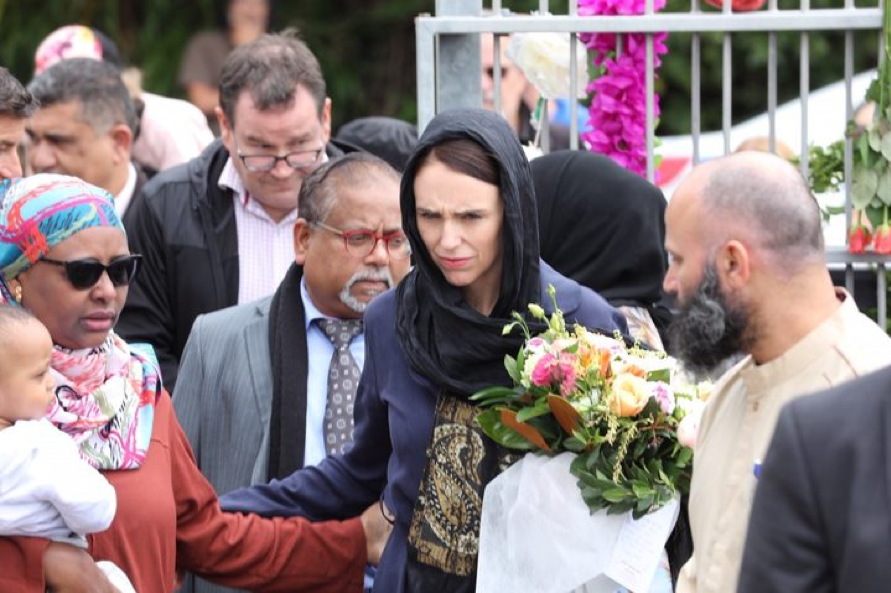Today’s issue highlights some of the worst answers from a national leader under pressure so far this millennium!

And there are contrasting heroic answers from another national leader in similar circumstances which rate among the millennium’s best so far.

Both leaders have had to react to sudden appalling violent tragedies in their respective countries.
As heartfelt sympathy, support and good wishes continue to pour out for all those affected by the terrible events in Sri Lanka and New Zealand, their leaders’ contrasting approaches provide lessons on to how to respond to tough questions in severe adversity.
But first, let’s focus on turning bad answers to tough questions in your workplace into great ones.
I’m developing a new way to enhance the content, structure and delivery style of answers throughout the business world – and giving you an opportunity to influence its final form…
NEW VIDEO SERIES TO HELP
GREAT ANSWERS IN BUSINESS
It’s my ambition to save the business world – as far as is humanly possible – from atrocious answers to tough questions.
This includes answers to questions such as:
Why should anyone do business with you?
Will you resign?
How can you possibly justify a pay rise?
Do you really deserve this job?
How do you – and those around you – respond when you have to answer these kinds of questions now?
Here’s world-class professional speaker Frank Furness, on the left, role-playing how people can look uncomfortable and perform badly while being asked “blowtorch-on-the-belly” questions at a London book launch by a provocative character on the right.

When people are asked blowtorch-on-the-belly questions for real, they can feel, look and sound very uncomfortable indeed.
Careers can go up or down depending on how you, and your team, perform in such moments.
I’m creating the online video learning series “GREAT ANSWERS TO TOUGH QUESTIONS IN THE BUSINESS WORLD” to give everyone the tools to formulate impressive, bombproof and confident replies to challenging questions at work.
You can exert your influence on the development of this video series by answering some easy questions in the link to the short survey below.
If you’re happy to give your thoughts to help me and my colleagues at the production company Five On A Bike to hit the right spots with the new video series, it would be greatly appreciated.
(There’s even the prospect discounted offer for those who complete the survey!)
Please respond to the questions set out via the link below:
Many thanks for any thoughts you’d care to give.
Here’s to your great answers to the survey questions!
WORST ANSWERS OF THE MILLENNIUM
(SO FAR)
Hearts around the world have gone out to those affected by the horrific bomb attacks which have claimed over 250 lives in Sri Lanka.
It’s not easy to lead a country in the aftermath of such horrendous events.
BUT despite the obvious pressures, some of the answers given by Sir Lanka’s Prime Minister must rate as the worst of the millennium by a national leader (so far).
They underline why leaders – of nations, companies and other entities – need to prepare in good times for answering tough questions in bad times.
In a BBC interview after the bombings, Ranil Wickremesinghe, answered questions as if he were an out-of-touch bystander rather than a leader determined to protect his people and take action to stop a further repetition of the bombings.
His answers may have contained moments of commendable honesty.
But when you’re meant to be in charge, it’s hardly reassuring for a Prime Minister to merely say he was “out of the loop” when it came to intelligence warnings that the authorities knew about ahead of the deadly bombings.
At the moment, the most shocking parts of the interview are not available on the internet – including the point where the PM makes the cardinal mistake of seeking to respond to a question with a question.
But there is an extract available which is enough to show how un-reassuring it is when a leader responds to questions defensively without going on to say what he’s doing to tackle the urgent problems.
The interviewer is the BBC’s admirably persistent Clive Myrie.

The excerpt of the interview below begins with Mr Wickremesinghe responding to a question about the intelligence warnings which the Sri Lankan police received but which the PM says were not passed on to him.
BEST ANSWERS OF THE MILLENNIUM
(SO FAR)
And if you want to be inspired by some more responsible answers from another leader under similar pressures, have a look at the heroic approach of New Zealand’s Prime Minister, Jacinda Ardern, in the wake of the similarly terrible Christchurch shootings which left 50 people dead.

Here below is an interview – also conducted by Clive Myrie – where Ms Ardern’s answers indicate that she was totally within the loop and prepared to own the problem which she was not responsible for creating.
As a result, she gives a highly impressive set of answers.
While I’ve had the privilege of training many leaders on the art of giving great answers under pressure, alas I can’t claim the credit for guiding Jacinda Ardern on her approach.
But any guidance she’s received has clearly helped her reach great heights – in a way that provides an enlightened model for all.

